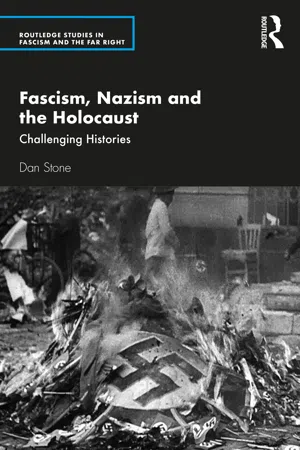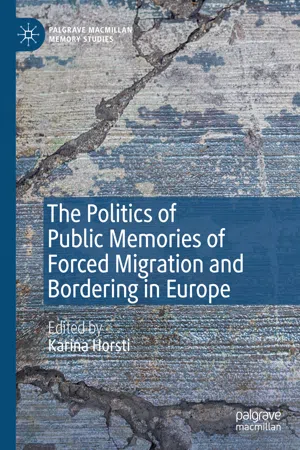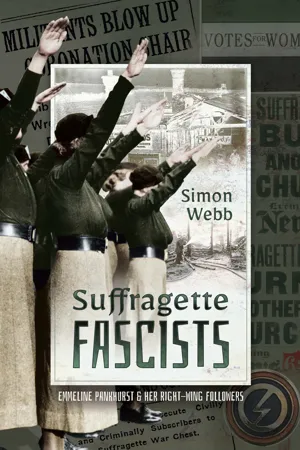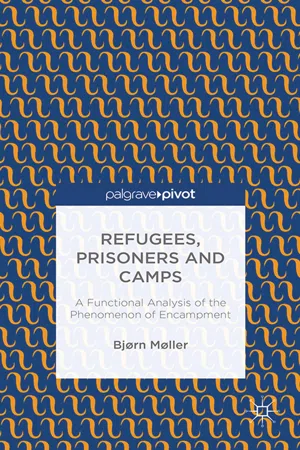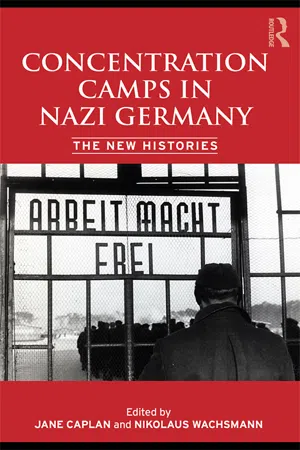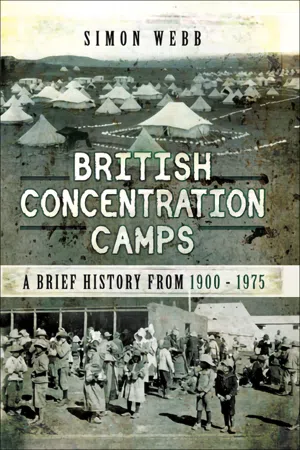Concentration Camps
6 Key excerpts on "Concentration Camps"
- eBook - ePub
Fascism, Nazism and the Holocaust
Challenging Histories
- Dan Stone(Author)
- 2020(Publication Date)
- Routledge(Publisher)
...Confronted with the reality of the Concentration Camps, we are unable to speak. This is a greater danger than the atom bomb, since it represents a threat to the human soul. 46 That may be true but it is also ahistorical. Concentration Camps emerged in the early twentieth century as modern states emerged out of older empires, sustained by ideas of nationalism and biological metaphors defining the healthy and valuable on the one hand and the polluting and degenerate on the other. It is in fact possible to historicize the emergence of the concentration camp and to explain why, for all the continuities with social and colonial practices of preceding centuries, the term and the phenomenon arose when they did. The concept of the concentration camp, Javier Rodrigo reminds us, ‘refers not so much to a place with a set of uniform features over space and time as to the status that has been conferred on such a place.’ As he notes, Concentration Camps emerged in many places around the same time, but with distinct local variations, meaning that there is a ‘cumulative history’ of Concentration Camps, ‘with lessons learned, discontinuities and adaptations to the contexts in which they developed.’ Rodrigo provides a clear statement of the historical context in which Concentration Camps emerged in the wake of colonial wars and World War I: The Concentration Camps symbolized the transformation and radicalization of the politics of occupation, which extended from the treatment of political prisoners and prisoners of war to the deportation of civilians, from forced labour in extreme conditions to the hunger and misery occupied peoples were also subjected to. Concentration Camps also came to serve as a space for social cleansing and internal politics. 47 Concentration Camps were ways of keeping the unwanted elements at bay and, furthermore, putting them to use: not only through their labour (which was rarely very productive) but as a warning to wider society too...
- Karina Horsti, Karina Horsti(Authors)
- 2019(Publication Date)
- Palgrave Pivot(Publisher)
...In the following, I therefore distinguish between the origins of the term, the origins of the concentration camp as an institution and the origins of the images that are commonly conjured when the term is used today, including in discussions about the detention of migrants and refugees. In the English language, the term “concentration camp” became firmly established in 1901, when the British army set up camps to “concentrate” Boer civilians in the context of the South African War (1899–1902); the term was then widely used in the British press (e.g., Hobhouse 1901). 1 More than 26,000 women and children died in these camps. However, many historians trace the term back to the Cuban War of Independence (1895–1898), when the Spanish military confined Cuban non-combatants in designated zones. In Germany, the equivalent term, Konzentrationslager, was introduced in 1904 during the genocidal war against the Herero and Nama in German Southwest Africa to refer to internment camps that were partly modelled on the Concentration Camps in neighbouring British South Africa (see Kreienbaum 2015). 2 In the early years of the Weimar Republic, Konzentrationslager were briefly used to intern non-German Jews. By the time the Nazis came to power and almost immediately set up Konzentrationslager —the Dachau concentration camp was established on 22 March 1933, only seven weeks after Adolf Hitler was appointed German chancellor—the term had been well established. As institutions designed to confine and isolate civilian populations—usually belonging to particular national, ethnic, religious, social or political groups—without trial, the Concentration Camps of the second Boer War were not radically new...
- eBook - ePub
Suffragette Fascists
Emmeline Pankhurst & Her Right-Wing Followers
- Simon Webb(Author)
- 2020(Publication Date)
- Pen & Sword History(Publisher)
...Chapter 6 Concentration Camps and Ethnic Cleansing I llustration 15 shows a strange and alarming thing; a concentration camp operating in England over a century ago. This is one of the camps in which German and Austrian civilians, some of whom had been born in Britain and lived there all their lives, were held for years. Most people in this country are now quite unaware that one result of the campaign against Germans and Austrians living peacefully in Britain in 1914 was the establishment of Concentration Camps across the whole of the country, including several in London, and the systematic ethnic cleansing of those who, to quote a leading suffragette, had ‘enemy blood’. Since the end of the Second World War, the expression ‘concentration camp’ has acquired an extremely sinister and unsavoury association, which is perhaps not to be wondered at in the aftermath of the Holocaust. We try and forget that Britain pioneered the use of Concentration Camps, and indeed were the first to use the very phrase, during the Boer War, and then, a few years later, in Britain itself. In those days, there was no squeamishness about calling the things by their correct name and so people living in London were quite aware of the existence of Alexandra Palace Concentration Camp and Stratford Concentration Camp. These were not of course extermination camps like Auschwitz and Treblinka, merely places where one could gather together any foreigners or other undesirable civilians whom one wished to keep under lock and key. Before going any further, it might be a good idea to explain what Concentration Camps are, as there seems to be a lot of confusion in many people’s minds. Concentration Camps are merely places where civilians are held indefinitely without trial, not for what they have done but for who they are. They are gathered together and detained without trial because of their nationality, ethnicity, religion or political beliefs...
- eBook - ePub
Refugees, Prisoners and Camps
A Functional Analysis of the Phenomenon of Encampment
- B. Møller(Author)
- 2014(Publication Date)
- Palgrave Pivot(Publisher)
...3 Concentration Camps and Ghettos Abstract: Chapter 3 offers a historical account of Concentration Camps from the very first, established in colonial settings, via the Nazi Concentration Camps to modern equivalents, for example, in North Korea. It also provides a classification of the Nazi Concentration Camps, including ‘death factories’ such as Auschwitz, and the perpetrators of genocide such as concentration camp guards, Einsatzgruppen and Nazi doctors such as Josef Mengele. Functional equivalents of industrialised mass murder such as slave labour and death marches are also covered as are post-war Concentration Camps. Keywords: Auschwitz; Bauman; Boer War; Concentration Camps; Eichmann; Einsatzgruppen ; genocide; ghettos; Holocaust; Jewish Councils; Mengele Møller, Bjørn. Refugees, Prisoners and Camps: A Functional Analysis of the Phenomenon of Encampment. Basingstoke: Palgrave Macmillan, 2015. DOI : 10.1057/9781137502797.0007. Even though the term ‘concentration camp’ has now become, in the public mind at least, primarily associated with the German genocide of the Jews during World War II, with ‘Auschwitz’ as the epitome, neither the term nor the phenomenon are of German origin, and even the German Concentration Camps were a very amorphous bunch of camps with very diverse functions. Indeed, as we shall see shortly, even Auschwitz itself did not quite fit the paradigm as it was actually a mixed camp for forced labour (viz...
- eBook - ePub
Concentration Camps in Nazi Germany
The New Histories
- Nikolaus Wachsmann, Jane Caplan, Nikolaus Wachsmann, Jane Caplan(Authors)
- 2009(Publication Date)
- Routledge(Publisher)
...7 The Holocaust and the Concentration Camps Dieter Pohl Prior to 1942, the Nazi Concentration Camps were much less important for the persecution and murder of European Jewrythan had been assumed for decades after the war. Research during the last 25 years has shown that less than half of the victims of the Holocaust were killed in camps; and within this group approximately 1.2 million men, women and children were murdered in Concentration Camps properly speaking, i.e. those camps subsumed under the Inspection of the Concentration Camps (IKL) and later the SS Business and Administration Main Office (WVHA). The reasons for this lay both in the course of anti-Jewish policy and in the comparatively late expansion of the Concentration Camps into the massive system they eventually became, which did not begin until the end of 1942. 1 For a long time the historiography on the subject developed along two separate paths, with camp history on the one side and Holocaust history on the other. Only during the 1990s did it become commonly recognized that Jews were a major element in concentration camp history from 1943 on. Recently the history of Jews in several of the major camps like Gross Rosen, Ravensbrück or Stutthof has been investigated as a separate subject. 2 Current projects for encyclopaedias of the camps enable the historian to trace the history of each satellite camp, where Jews in particular were forced to work. 3 And there is now a growing body of literature on the death marches of 1944/5, which constitute a major part of both concentration camp history and the Holocaust. 4 Jews in Concentration Camps, 1933–1940 Jews were among the first victims of Nazi terror when the new regime took over at the beginning of 1933. But the initial wave of terror was not mainly directed against Jews, but predominantly against political opponents of Nazi rule, especially Communists and Social Democrats...
- eBook - ePub
British Concentration Camps
A Brief History from 1900–1975
- Simon Webb(Author)
- 2016(Publication Date)
- Pen & Sword History(Publisher)
...Scorched earth policies, the destruction of homes and herding of civilians into captivity behind barbed wire fences might have been a novelty at the end of the nineteenth century, but it was to be anything but out of-the-ordinary by the time that the twentieth century ended. Indeed, the concentration camp, as used by Nazi Germany, Soviet Russia, communist China and Britain bids fair to be regarded as something of a leit motif for the entire century. From the time of General Weyler onwards, civilians were frequently regarded as legitimate targets during times of war. Rather than, as was previously the case, being seen as largely an irrelevance, non-combatants were now viewed as pawns to be used and abused as circumstances dictated. One nation above all others though, looked with interest at the exploits of General Weyler and his unorthodox methods for subduing an elusive enemy. It was this nation which was to adopt the idea of Concentration Camps from the first year of the twentieth century, and continue to use them, more or less continuously, right through to the middle of the 1970s. Only a few years after the Cuban War, the British found themselves facing a precisely similar situation of their own in southern Africa. It was perhaps inevitable that they would seek to adopt similar means to the Spanish when they came to tackle a guerrilla war of their own; one which almost defeated the mightiest empire the world had ever seen....
